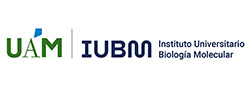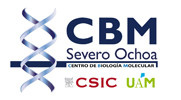Human stem cell biology in translational neuroscience
Molecular neuropathology
Prof. Marta Pérez Pereira. Profesora Contratada Doctor. Departamento de Biología Molecular. UAM
The concept of treating diseases with replacement cells in not new; blood transfusions, skin grafts and organ transplantation are all forms of cell replacement therapy. Many neurological diseases, like PD, are the result of cell death or degeneration. The exponentially growing impairment/death rate of dopaminergic neurons (DAn) in the midbrain’s substantia nigra (the A9 subgroup) in PD limits the therapeutic window of the treatments available that are known to increase the quality of life of patients although none can prevent the progression of PD.
Consequently, repairing damaged tissue becomes the goal; when cell loss cannot be prevented, cell replacement holds the key to recovery. Cell replacement therapy for PD is based on the concept that DAn implanted ectopically may functionally restore and maintain the DA levels lost in the disease. Clinical research using human fresh fetal ventral mesencephalic (VM) tissue (hfVM, containing some DAn precursors and many other cell types) provided proof of principle of the therapeutic efficacy of dopaminergic transplants on a long-term basis. However, limitations in hfVM supply, along with the variability of results of different clinical trials and the appearance of graft-induced dyskinesias in some patients, have precluded the implantation of tissue transplantation as a clinical therapy. In this context, research on the basic biology of human stem cells acquires special relevance. Our research group is interested in the basic biology of stem cells and the developmental events leading to maturation of neuronal derivatives of use in the study of the human brain and the development of novel cell-based therapies for neurodegenerative diseases (e.g. Parkinson’s and Alzheimer’s disease).
We have studied the trophic actions of human neural and mesenchymal stem cells in experimental in vivo models of PD focusing on the parallelism between pathological changes occurring in the brain vs. neurological and motor alterations. With a multidisdisciplinary approach, we have worked in the development of the technology for externally controllable bioimplants of therapeutic cells on-demand. These bioimplants consisting in multifunctional leaky optoelectrical fiber for potential neuromodulation and as a cell substrate for application in combined optogenetic stem cell therapy.
With the aim of minimizing the number of laboratory animals used for basic research while increasing the body of knowledge on the biology human neural tissue we have developed a research line devoted to the generation of human cerebral organoids with improved features facilitating patterning studies and useful for improving current preclinical research testing.


